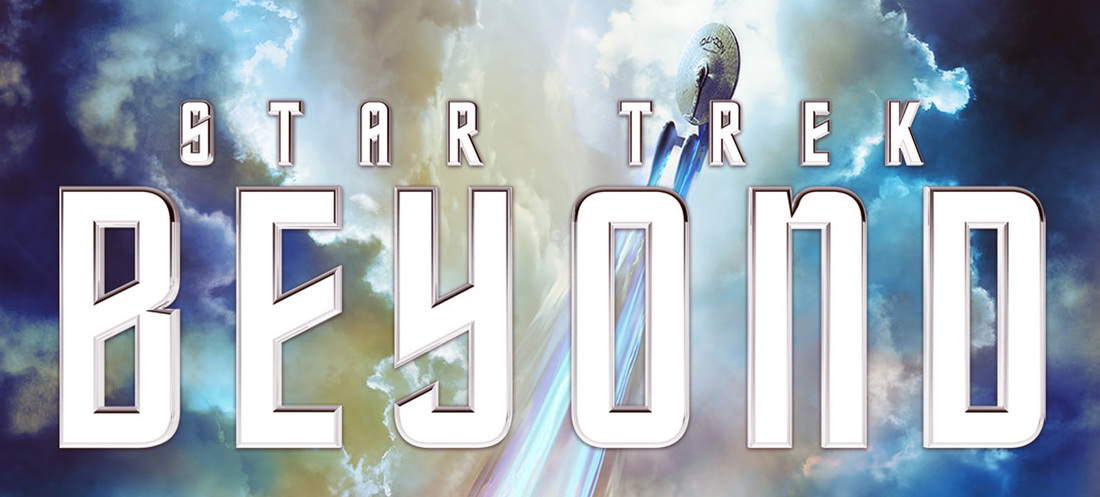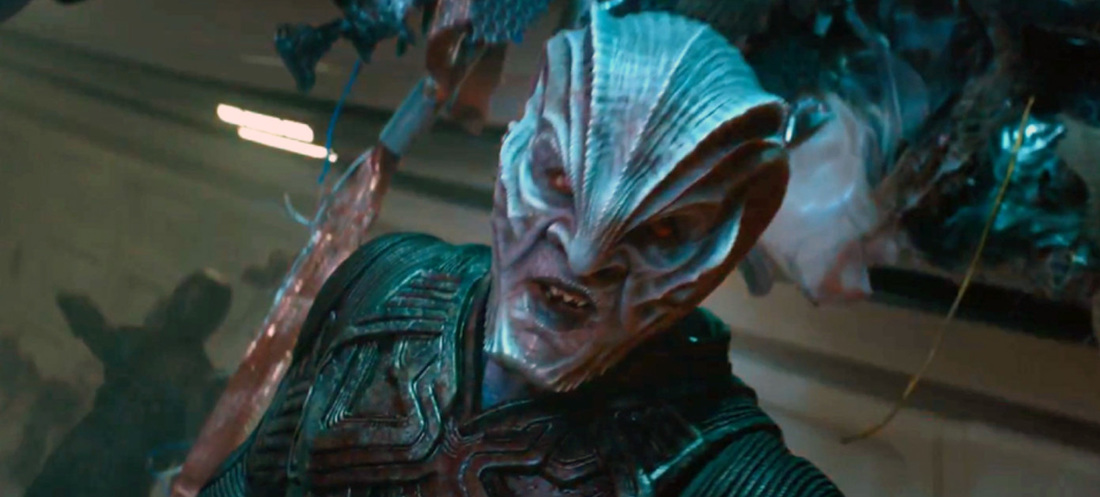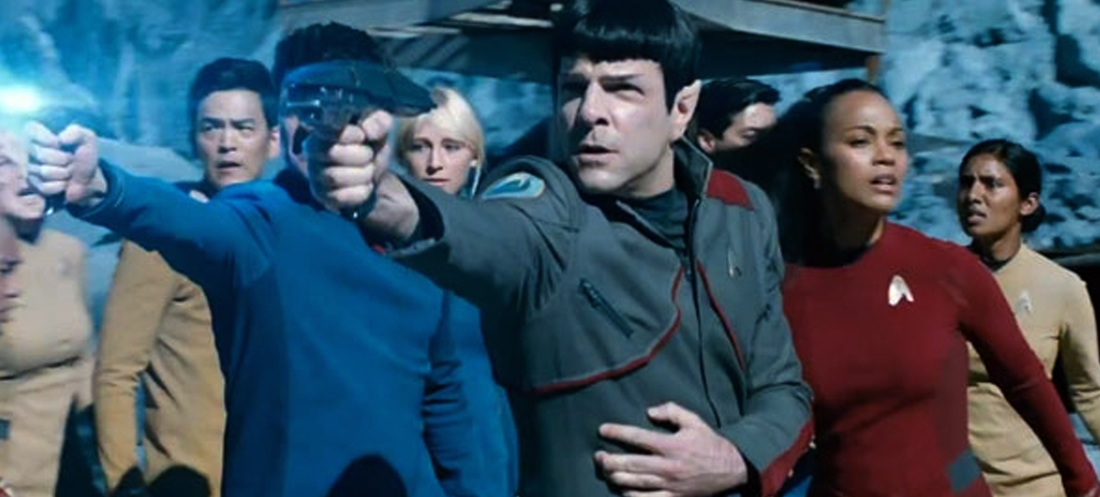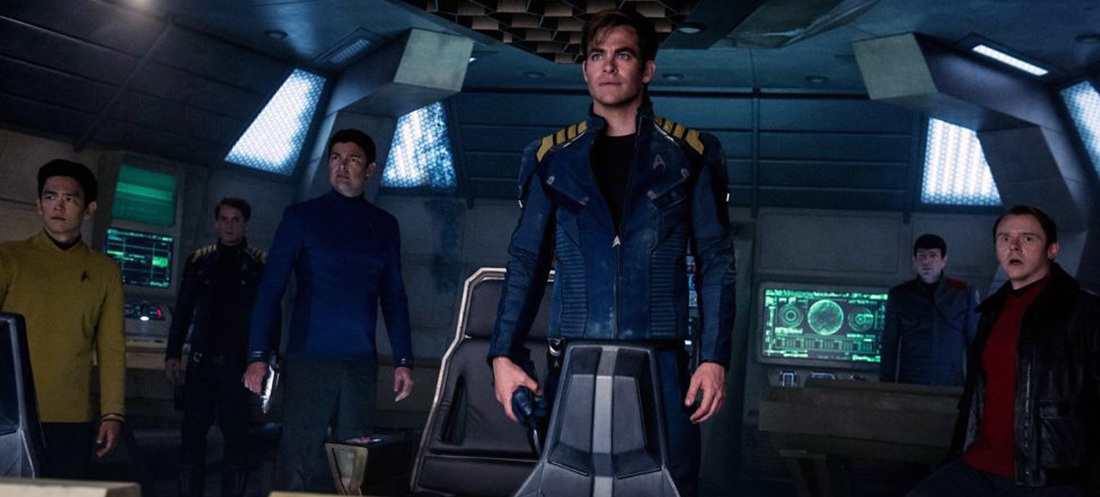Much of my suffering was owed to the reality that – by his own admission – Abrams never really “got” Star Trek. He was always more of a “Star Wars” guy. So instead of continuing in the mold of what honestly hadn’t been working successfully (if box office returns are any indication) with the failed Next Generation features, Abrams instead intended to re-brand the franchise visually in a way with stories he wanted to tell. Much of this involved, sadly, shirking off much of what had come before so that he and his creative team could bring Gene Roddenberry’s vision alive for an all new generation of ticket buyers, an audience with more in common with Transformers-era special effects, IMAX-inspired spectacle, and curiously unintelligent lens flare.
Curiously, many Trekkers have observed that, indeed, Abrams’ Star Trek has often times felt much more like his preferred Star Wars, (a franchise he now also has been given some control over … and do NOT get me started on how much I loathed Star Wars: Episode VII – The Force Awakens.
The 2009 Trek reboot – simply titled Star Trek – had its merits, most of them grounded in quality popcorn flicks, but – so far as my tastes were concerned – the film was mired far too much in the kind of saccharin “Space 90210” mentality, that of youngsters finding themselves and their respective places in the greater universe around them while saving life as we knew it from some time travelling Romulans with a planet-killing space laser (Death Star?). To make matters worse, Star Trek Into Darkness (2013) was just a massively mishandled project from conception to delivery: instead of boldly going where no one had gone before, JJ and his usual cadre of writers attempted to re-imagine 1982’s vastly stellar The Wrath Of Khan in such a way as to continually twist established canon on its head while reveling in its own perceived ingenuity to the point of absurdity.
… which brings me to the present’s Star Trek Beyond.
I hated the name, but then again I’ve hated the whole “Batman Begins” and “Superman Returns” trend of christening follow-ups, always preferring films to have their own respective identity, such as “Star Trek: The Search For Spock” or “Captain America: Civil War.” (I’m old-fashioned that way.) Even worse, I’ve hated the coming attractions, many of which have prominently positioned the director – Justin Lin of the Fast and Furious franchise – alongside images of James T. Kirk not commanding a starship but, instead, racing around (ahem) some alien catastrophie … on a motorbike. (?!?!?) Suddenly, Trekkers were being asked to embrace a forthcoming release with a title track sung by Rihanna, and I knew once and for all that – as the saying goes – this was not your father’s Star Trek any longer.
Well …
Despite JJ’s best efforts to the contrary, the cast and crew finally delivered a legitimate Star Trek film. It’s still imperfect, but it’s also one that just might help push the franchise – boldly – into the next generation.
Sure, I gest, but like so many other space pictures both in and beyond this franchise Star Trek Beyond does suffer from the all-too-cliched “the galaxy is at stake” factor. (You wanna talk about “Is this all there is?”) Granted, it’s still a well-proven trick to get your audience to sit up and take notice. Beyond ends up being as much about “before” as it does what may inevitably follow in future motion picture adventures, a great deal owed to the constantly witty script from the constantly witty Simon Pegg (who also plays Chief Engineer Montgomery Scott). Smartly enough, Pegg and co-screenwriter Doug Jung go to great lengths in recapturing the ensemble formula that made the original television series as well as the first six Paramount Trek films such winning exploits with the fan base: each and every member of the crew from the top-down had an important role to play in the greater tale, and each and every member was given a greater identity beyond his or her Starfleet profession, be it Uhura’s relationship with Spock, Spock’s relationship with his race, or Sulu’s relationship with – ahem – another man.
They’re small bits – individually they don’t amount to much screen time – but as any writer or watcher will tell you it’s the small bits which add up into the greater whole. These bits give added weight, added breadth, added dimension, in such a way as to engage the audience with characters in search of themselves as much as they are action stars in search of a solution. Once again, Trekkers are asked to identify with their heroes, and that brings us back to the whole idea of the human ‘Enterprise’ upon which Roddenberry originally asked us to embark.
In Star Wars, Luke Skywalker had to use the Force to help guide a missile shot from his X-Wing fighter down a thermal exhaust port in order to destroy the Death Star. In Star Trek: The Motion Picture, Kirk and crew had to convince an artificial intelligence that it had been first built by what it deemed an inferior life form – mankind itself – in order to push the entity to experience emotion. Granted, both films end with an explosion seen ‘round the world … but it’s the method in which the hero accomplishes the big objective that defines each franchise. Star Wars is always about “feeling the Force” and making sure it’s good vibes you’re getting so you don’t succumb to the Dark Side; while Star Trek is technobabble, re-routing phase inducers, and what I’ve always called “Bein’ true to the crew.”
Indeed, I’m reminded of the story about the NBC executive who first asked Roddenberry to reshoot Star Trek’s original pilot (“The Cage”) only, this time, (I’m paraphrasing) “make it less cerebral.”
Beyond harkens back to what made Star Trek a bold vision in the first place. Where Star Trek (2009) tried to re-brand Kirk in the Han Solo mold and Star Trek Into Darkness did the same (on space amphetamines), Beyond goes back to what’s tried, true, and proven in the franchise: Trek’s best adventures lie in the chemistry of human beings banding together to do what we’ve always done: namely, survive.
For example, Alba’s Krall spends a goodly portion of the picture merely being a space villain; Pegg’s script withholds the alien’s true motivation until far too late in the film, so much so I couldn’t help but keep asking myself over and over along the way what his beef was and if he was ever going to share it with those watching. Director Lin’s camera trickery includes much of the same whirling, twirling imagery of space, time, and action sequences that has (sadly) come to define contemporary cinema, so much so that I occasionally found it difficult to discern what was happening to who and why should I care about it. And – last but not least – Chekov is given far too little (of substance) to do, a doubly painful shame given actor Anton Yelchin’s tragic death earlier this year.
Still, Beyond succeeds as a Star Trek film largely because it does what JJ’s attempts refused to do: it embraced its heritage. It looked back at what came before, and – without repeating itself – it delivered a crew worthy of our time and attention, and the characters had to come up with workable solutions to overpower a force greater than them individually but didn’t have a prayer against them as a team.
And – dare I say – the performances are all very good. Pine, Zachary Quinto (as Spock), John Cho (Sulu), and others have finally started to find the familiarity with these characters, so much so that it’s starting to show on screen. The great Karl Urban continues to be in a league all of his own here as his interpretation of Dr. McCoy really cries out for its own supporting Oscar … or maybe a Hugo or a Saturn, if those organizations recognize that kind of thing. Somehow it remains as equally reverential (to DeForest Kelley) as it is bold and new.
Occasionally, Beyond did get a bit preachy about unity being stronger than the individual (think of it as globalism triumphs nationalism, though I could pick that apart in an instant were I interested), but – as I’ve always said – it’s easy to forgive a screenwriter or a director’s political shenanigans if and when it goes down easy.





 RSS Feed
RSS Feed